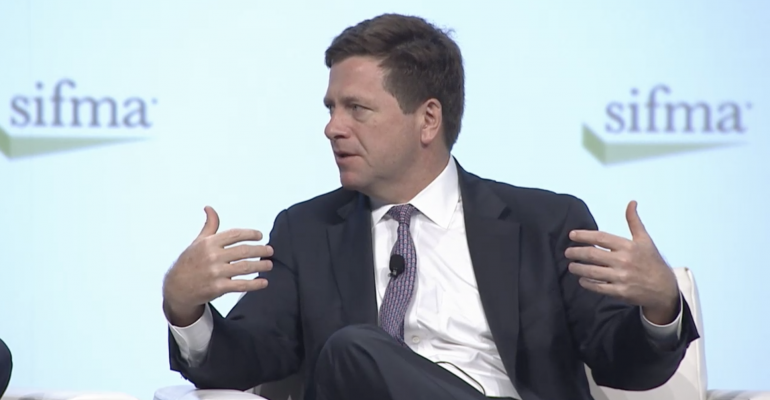Jay Clayton, the chairman of the Securities and Exchange Commission, declined to share a timetable for delivery of the Regulation Best Interest (Reg. BI) rule at a gathering Tuesday, though he emphasized the effort is a top priority for his commission.
The regulator has received more than 6,000 comment letters about the rule and they are still flowing in, said Brett Redfearn, director of the Division of Trading and Markets at the SEC, said to attendees at the Securities Industry and Financial Markets Association (SIFMA) C&L Annual Seminar in Phoenix.
Clayton did take the opportunity to emphasize again that Reg BI would employ a combination of better disclosures and mitigation efforts to ensure brokers were acting in a client's best interest, though how that applies would depend on context. He said the rulemakers were guided by the principle of asking what a reasonable client should expect from their broker.
Robert Colby, chief legal officer at FINRA, said the self-regulatory organization was paying close attention to the rulemaking, and would wait to see what role, if any, FINRA will have in its enforcement. “We saw [the rule] referred to FINRA 472 times, but who’s counting?" Colby said.
The panel also discussed how the regulatory agency is trying to focus enforcement efforts towards brokers with a history of misconduct and the goal of improving operatinal efficiency at the commission.
Keeping an eye on "blurring lines between banking and brokerage activities" remains a challenge, Morris Morgan, the senior deputy comptroller and chief operating officer of the Comptroller of the Currency, said, though banks are by and large doing a good job overseeing potential conflicts.
Taking on the theme of operation efficiency in regulation, Merri Jo Gillette, the deputy general councel of Edward Jones and moderator of the panel, asked why her firm received a "voluminous request" from the SEC, fulfilled it, and then received a similar one from FINRA less than a year later. “It just seems like we could get better at that,” she said.
Redfearn and Colby agreed that a "harmonization" between the two regulators could have failed. Colby also said FINRA intentionally follows up on some SEC exams “to see if they missed anything."
“We try to focus on the riskiest firms and, for other firms, the riskiest part of their firm,” Colby said. “There are a segment of firms that ignore us. And they ignore us over, and over, and our examiners can’t lower the boom.”
FINRA is then forced into a long investigative process before it can take action against a firm. Meanwhile, the wrongdoing continues. Colby said FINRA is working on a proposal that would speed up that process. "We eventually get them out,” he said.

